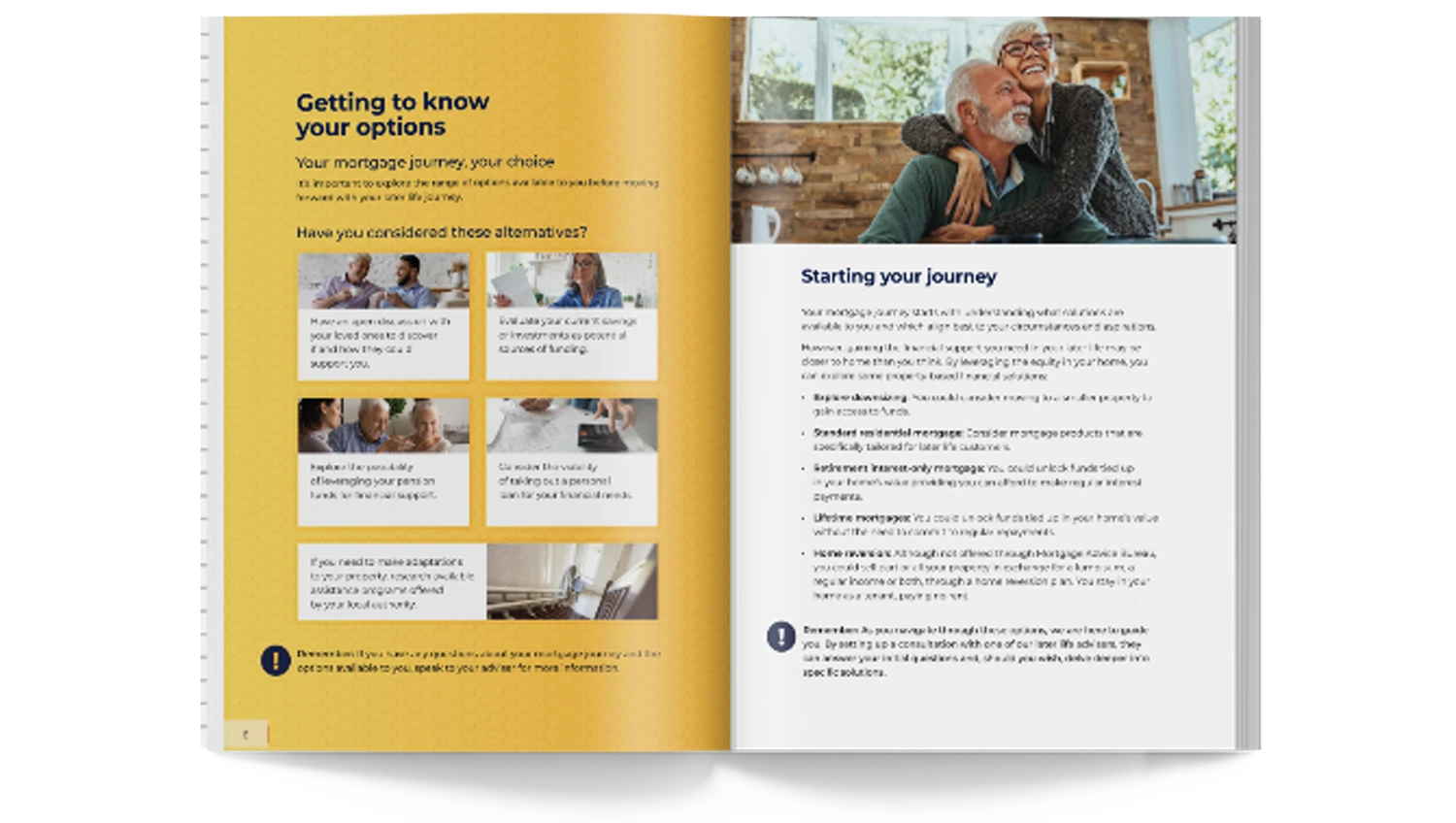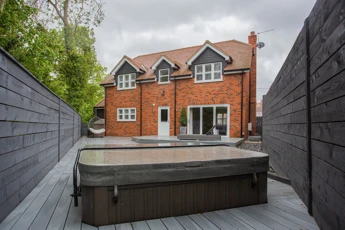Here’s what you need to know...
A retirement interest-only mortgage (RIO) is a financial product designed for individuals aged 50 and older. Unlike traditional mortgages, RIO mortgages mean you only pay the interest each month, without a fixed repayment term.
There are pros and cons to RIO mortgages, so let's discuss the basics and what you need in order to qualify for one:
What is the eligibility criteria?
You will need to pass lender affordability checks to prove you can afford the interest-only repayments.
RIO mortgages are only available when the youngest applicant is at least 50 years old.
How much can I borrow?
You can borrow up to 75% of your property’s value with a retirement interest-only mortgage.
Do I have to make regular repayments?
Yes, you need to make interest payments.
When do I have to repay the full amount of the loan?
The full repayment of the capital is usually due when the homeowners sell the property, pass away, or move into long-term care.
Want to learn more?
Download our later life guide
If you're nearing retirement or already enjoying it, our later life guide is designed to answer all your questions and provide clarity on the mortgage options tailored to your golden years.

Ready for a chat?
Book a callback
Fill in the form and one of our specialist advisers will contact you to expertly answer any questions you may have.
You can also call us directly on 03300 164386
Things to consider
You should always think carefully before securing a loan against your property. Your home may be repossessed if you do not keep up repayments on your mortgage.
Mortgage Advice Bureau charges a fee for later life mortgage advice. The fee is up to £995.
Other options to consider
Standard residential mortgage
If you have a steady income that can cover the repayments, you might be eligible for a standard residential mortgage.
You can choose between two repayment options: capital repayments or interest-only repayments.
Your home may be repossessed if you do not keep up with mortgage repayments.
Lifetime mortgage
A lifetime mortgage is a loan secured against your home.
There’s no need to make monthly payments, unless you choose to.
A lifetime mortgage will reduce the value of your estate and may affect your entitlement to means tested benefits.
Frequently asked questions
Unlike traditional mortgages, where you make both interest and principal payments, RIOs require you to only pay the interest on the loan each month. The initial amount you borrowed remains the same until the end of the mortgage term, or until the property is sold. This is because you're not making any contributions to the overall debt, simply covering the interest that accrues.
Keep in mind that this is a loan secured against your home. As a last resort, your home may be repossessed if you do not keep up with payments.
- Applicants must be 50 or older to qualify for a RIO mortgage
-
You must own a significant portion of your home’s equity.
-
You must demonstrate a reliable income source, such as pension income, to cover the interest repayments.
During the term of the mortgage, you're required to make monthly payments that cover the interest on your loan. If you're on a fixed rate, these payments will remain consistent for the duration of the term. Fixed interest rate mortgages can last anywhere from two, three, five, or even 10 years.
If you're on a variable rate, these may change (sometimes even monthly, as wider interest rates fluctuate). This means you benefit if rates drop lower, but pay more if they increase.
The downside to a fixed rate is that if you need to end your mortgage early, you may have to pay an early repayment charge.
These payments do not reduce the principal amount you owe - they simply cover the cost of the interest. The outstanding principal amount is repaid upon death, after transitioning into long-term care, or following the sale of the property.
With only the interest to pay each month, you'll typically have lower monthly mortgage payments compared to traditional mortgages. This can provide financial relief, especially for retirees on fixed incomes.
Your home remains yours, providing stability and guaranteed homeownership if you keep up with your repayments.




